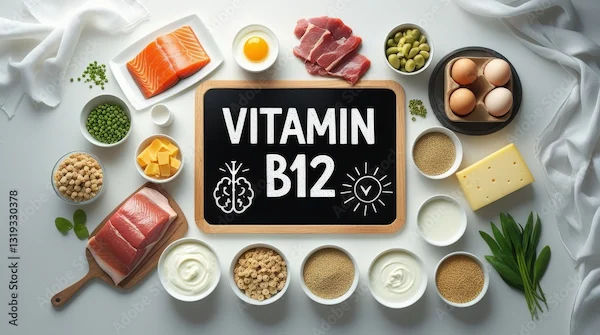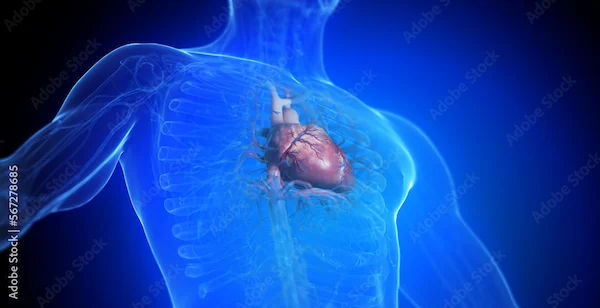Essential Foods For Heart Health
Discover essential foods for heart health that can boost your well-being. Learn about nutrient-rich options that support a strong, healthy heart and reduce the risk of heart disease.

Written by Dr.Sonia Bhatt
Last updated on 3rd Jul, 2025

Cardiovascular diseases (CVDs) are a major global health concern, affecting the heart and blood vessels and including conditions like coronary heart disease, strokes, and other related disorders. These diseases continue to be a significant health challenge, particularly in low- and middle-income countries.
Diet plays a vital role in both preventing and managing heart disease. Healthy eating habits, particularly focusing on foods low in salt, cholesterol, and saturated fats, can greatly reduce the risk of CVD. Along with a heart-healthy diet, regular exercise and avoiding smoking can help prevent most cases of heart disease. Even if there is a family history of heart disease, lifestyle changes, especially in diet, remain the most effective way to maintain heart health. In this blog, we will explore the essential components of heart-healthy diets, their benefits, and how they can help you protect and maintain a healthy heart.
Heart-Healthy Nutrients
Certain key nutrients directly impact the risk factors associated with cardiovascular issues and they are as follows:
1. Fiber
Soluble Fiber: Found in foods like oats and apples, it helps lower LDL cholesterol and supports blood vessel health.
Insoluble Fiber: Present in whole grains and vegetables, it aids digestion and promotes regular bowel movements.
Heart Benefits: Prevents plaque buildup in arteries and supports overall heart health.
Recommended Intake: Aim for 25+ grams of total fiber daily.
2. Omega-3 Fatty Acids
EPA & DHA (Marine Omega-3s): Found in fatty fish like salmon and sardines, they reduce inflammation, lower triglycerides, and enhance blood vessel function.
ALA (Plant-Based Omega-3): Sourced from flaxseeds and walnuts, it supports heart health but is less potent than EPA and DHA.
Heart Benefits: Improves blood vessel function, reduces the risk of arrhythmias, and lowers inflammation.
Recommended Intake: 250–500 mg of EPA/DHA daily or at least two servings of fatty fish per week.
3. Antioxidants
Role: Antioxidants combat oxidative stress, protecting blood vessels and reducing inflammation.
Sources: Flavonoids, polyphenols, and carotenoids in fruits and vegetables improve blood flow and help regulate blood pressure.
Key Vitamins: Vitamin C and E reduce oxidative damage to blood vessels.
Heart Benefits: Improves blood circulation and reduces the risk of cardiovascular damage.
Recommended Food Items for Heart Health
Foods that promote heart health are as follows:
1. Whole Grains
Whole Grains (e.g., oats, quinoa): Help lower LDL cholesterol and improve digestion.
High in fiber, antioxidants, and heart-friendly nutrients.
2. Fruits and Vegetables
Packed with vitamins, minerals, and antioxidants to support heart function.
Leafy Greens (e.g., spinach, kale): Help lower blood pressure.
Berries (e.g., blueberries, strawberries): Contain anthocyanins that protect blood vessels.
Citrus Fruits (e.g., oranges, lemons): Aid in managing cholesterol levels.
3. Fish and Lean Proteins
Fatty Fish (e.g., salmon, mackerel): Rich in omega-3 fatty acids, which reduce inflammation and triglycerides.
Lean Meats (e.g., chicken, turkey): Offer high-quality protein with minimal saturated fat.
Plant-Based Proteins (e.g., lentils, beans): Deliver essential nutrients without added animal fats.
Foods High in Healthy Fats
Foods that are high in healthy fat are as follows:
1. Nuts and Seeds
Provide heart-friendly fats, fiber, and essential nutrients.
Walnuts: Rich in omega-3 fatty acids, reducing inflammation and improving heart health.
Almonds: Help lower LDL cholesterol and maintain healthy blood pressure.
Chia and Flax Seeds: Contain plant-based omega-3s and support blood vessel health.
2. Avocados
A rich source of monounsaturated fats that help lower bad cholesterol (LDL) while increasing good cholesterol (HDL).
Packed with potassium, which helps regulate blood pressure.
Provide antioxidants like lutein, supporting overall cardiovascular health.
3. Olive Oil
High in monounsaturated fats and antioxidants, particularly polyphenols, which reduce inflammation.
Helps improve cholesterol levels and protect blood vessels.
Extra virgin olive oil offers the most heart-protective benefits due to minimal processing.
Heart-Healthy Beverages
Beverages that are healthy for heart are as follows:
1. Green Tea
Rich in antioxidants like catechins that improve blood flow and lower LDL cholesterol.
Reduces inflammation and supports healthy blood pressure.
2. Red Wine (in Moderation)
Contains heart-protective resveratrol and flavonoids.
Moderate consumption may lower heart disease risk.
3. Herbal Teas
Caffeine-free teas like hibiscus and chamomile promote relaxation and reduce stress.
Hibiscus tea may help lower blood pressure due to its antioxidants.
Foods to Limit or Avoid for Heart Health
Certain foods significantly harm heart health due to their high content of unhealthy fats, sugars, and sodium.
1. Processed Foods and Sugars
Packed with refined sugars, unhealthy fats, and artificial additives, these foods contribute to elevated blood sugar, insulin resistance, and obesity.
Common examples include cookies, candies, packaged cereals, sweetened beverages, and fast foods.
2. Trans and Saturated Fats
These harmful fats promote plaque buildup in arteries, increasing the risk of heart disease.
Trans fats raise LDL (bad cholesterol) and lower HDL (good cholesterol), contributing to atherosclerosis (narrowed arteries).
Examples: Fried chips, margarine, pastries like doughnuts (trans fats), fatty cuts of beef, lamb, butter, and cream (saturated fats).
3. High-Sodium Foods
Excess sodium leads to fluid retention, which raises blood volume and blood pressure, putting extra strain on the heart.
Examples: Salted snacks, processed meats (sausages, bacon), canned soups, and fast food meals.
Meal Planning Tips for Heart Health
Meal planning for heart health is an essential step toward making mindful food choices that support cardiovascular wellness and overall well-being.
1. Opt for Healthy Fats: Choose heart-friendly fats, such as those found in olive oil, avocado, nuts, and fatty fish. These fats help support cardiovascular health and lower bad cholesterol levels.
2. Avoid Replacing Fat with Sugar or Refined Carbs: While cutting fat may seem like a healthy choice, it’s important not to replace it with sugar or refined carbohydrates. These can increase the risk of heart disease and raise blood sugar levels.
3. Prioritise High-Fiber Foods: Incorporate more fiber-rich foods like whole grains, legumes, fruits, and vegetables. Fiber helps lower cholesterol, regulate blood sugar, and promote healthy digestion.
4. Limit Salt and Processed Foods: Cut back on salt and avoid processed foods, which are often high in sodium and unhealthy fats.
5. Practise Home Cooking: Preparing meals at home allows you to control ingredients and portion sizes, helping you make healthier choices and avoid the hidden fats, sugars, and sodium found in many packaged foods.
6. Control Portion Sizes and Weight: Eating the right portion sizes can help maintain a healthy weight, which in turn reduces the risk of heart disease.
Supplements for Heart Health
The supplements that helps heart health in addition to heart healthy diet are as follows:
1. Fish Oil Supplements
Contain omega-3 fatty acids (EPA and DHA) that support heart health.
Help reduce triglycerides, lower inflammation, and improve blood vessel function.
May reduce the risk of heart arrhythmias and support overall cardiovascular well-being.
2. Coenzyme Q10 (CoQ10)
Acts as an antioxidant and supports energy production in heart cells.
Helps reduce oxidative stress and improve heart function, especially in individuals with heart conditions or those taking statins.
May contribute to lower blood pressure and improved overall heart health.
Conclusion
Embracing a heart-healthy diet goes beyond safeguarding your heart—it fosters a lifestyle that enhances overall well-being. Along with reducing cardiovascular risks, it improves digestion, aids in weight management, and lowers the likelihood of other chronic diseases. Prioritising nutrients like fiber, omega-3 fatty acids, antioxidants, and potassium is key to supporting heart health. However, portion control remains crucial, even when enjoying heart-friendly foods.
Consult Top Dietician
Consult Top Dietician

Ms. Priyanka Saini
Dietician
9 Years • Msc (Food & Nutrition),NDEP
Ghaziabad
Dr. PRIYANKA SAINI'S CLINIC, Ghaziabad

Ms. Soma Saha
clinical nutrition
17 Years • B.Sc. - Home Science (Food & Nutrition), M.Sc. - Home Science (Food & Nutrition)
Kolkata
Dr Utsa Basu Clinic, Kolkata
(25+ Patients)

Ms Silky Mahajan
Dietician
16 Years • B.Sc. - Home Science (Food & Nutrition), M.Sc. - Home Science (Food & Nutrition)
Bengaluru
Foods and Nutrition Clinic, JP Nagar, Bengaluru

Ms. Sreeparna Dey Dhara Deb
Dietician
8 Years • Master of science and dietetics
Bansdroni
Siddhita Healthcare., Bansdroni

Dt Silky Mahajan
Dietician
16 Years • B.Sc. - Home Science (Food & Nutrition), M.Sc. - Home Science (Food & Nutrition)
Bengaluru
Foods and Nutrition Clinic, Koramangala, Bengaluru
(200+ Patients)


